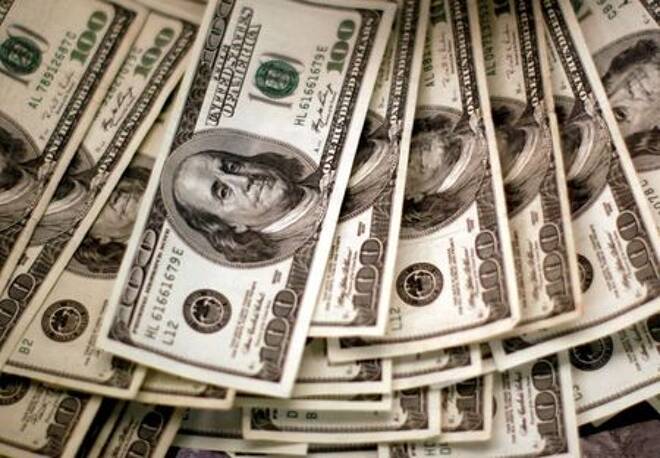Advertisement
Advertisement
Dollar Drops With US Yields, Euro Buoyed as ECB Trims Emergency Support
By:
NEW YORK (Reuters) - The dollar dipped on Thursday as Treasury yields fell after the U.S. government saw strong demand for a sale of 30-year bonds, while the euro was supported after the European Central Bank said it would trim emergency bond purchases over the coming quarter.
In this article:
The greenback has largely moved in line with Treasury yields this week. Yields fell on Thursday after the Treasury completed $120 billion in coupon-bearing supply scheduled for this week.
Against a basket of peers, the dollar is holding above a one-month low reached on Friday when jobs data for August showed that jobs growth slowed.
The dollar index dropped 0.23% to 92.47, up from a one-month low of 91.94 on Friday.
Investors are focused on when the Federal Reserve is likely to begin paring bond purchases as it balances rising price pressures against a still relatively soft employment picture.
Chicago Federal Reserve President Charles Evans on Thursday said the U.S. economy is “not out of the woods yet,” and that despite strong economic growth and the promise of vaccines, challenges remain, including supply chain and labor market bottlenecks.
Fed Governor Michelle Bowman, meanwhile, added her voice to the growing number of policymakers who say the weak August jobs report likely won’t throw off the central bank’s plan to trim its $120 billion in monthly bond purchases later this year.
Data on Thursday showed that the number of Americans filing new claims for jobless benefits fell last week to the lowest level in nearly 18 months, offering more evidence that job growth was being hindered by labor shortages rather than cooling demand for workers.
The euro was also supported after the ECB maintained a dovish tone and offered no major surprises as it took a first small step toward unwinding the emergency aid that has propped up the euro zone economy during the pandemic.
In the past two quarters, the bank has purchased around 80 billion euros worth of debt each month. It provided no numerical guidance for the three months ahead, but analysts had predicted before the meeting that purchases would fall to between 60 billion and 70 billion euros in those months.
“The ECB is delivering mainly as expected today,” analysts at TD Securities said in a report. “Looking ahead, the focus will be on how the ECB defines “moderately” – anything less than €60bn/mo could be bearish.”
The euro gained 0.11% on the day to $1.1828.
Bitcoin edged higher it attempted to recover from a large and sudden price drop on Tuesday.
The cryptocurrency gained 1.28% to $46,680.
For a look at all of today’s economic events, check out our economic calendar.
(Reporting by Karen Brettell; Editing by Philippa Fletcher and Jonathan Oatis)
About the Author
Reuterscontributor
Reuters, the news and media division of Thomson Reuters, is the world’s largest international multimedia news provider reaching more than one billion people every day. Reuters provides trusted business, financial, national, and international news to professionals via Thomson Reuters desktops, the world's media organizations, and directly to consumers at Reuters.com and via Reuters TV. Learn more about Thomson Reuters products:
Did you find this article useful?
Latest news and analysis
Advertisement
